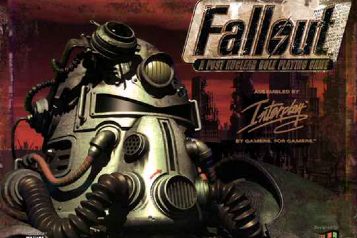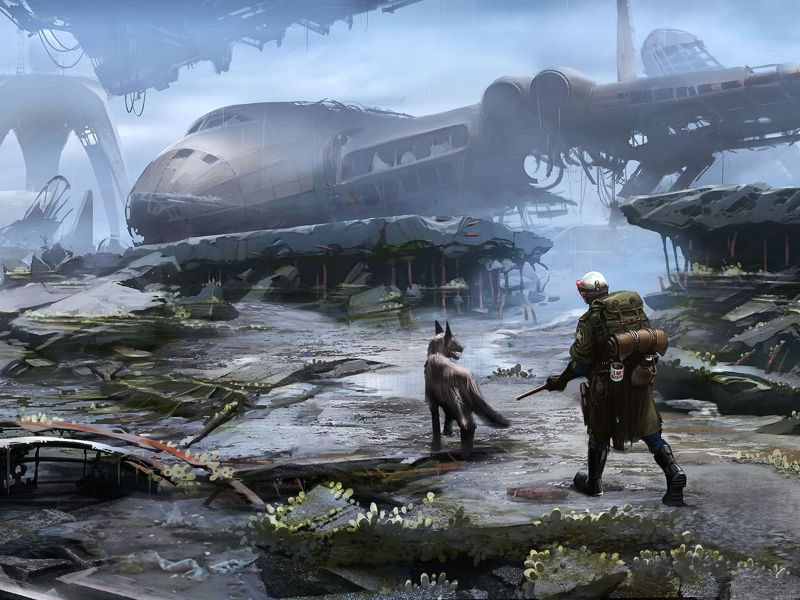
Within the immersive world of Fallout, the narrative intricately weaves themes of technological ambiguity, moral intricacies, and the fragility of civilization. These profound elements are not just thematic undercurrents but vividly depicted through captivating in-game experiences that etch themselves into the player’s psyche.
Technological duality emerges as a recurring motif within the Fallout universe. The symbolic Power Armor encapsulates this dichotomy. Serving as a guardian’s emblem, it embodies both resilience and ruin. Beyond its formidable protective capabilities, Power Armor’s origins in pre-war military might highlight the cataclysmic consequences of unbridled technological advancements. It stands tall as a testament to humanity’s mastery over innovation but also serves as a haunting reminder of the destructive potential of progress gone unchecked. Similarly, the Vaults, conceived as havens, unravel a darker narrative, revealing clandestine social experiments veiled beneath the guise of protection—a chilling portrayal of how technology’s guise can harbor clandestine agendas.
Moral complexity pulsates through Fallout’s narrative, encapsulated by pivotal choices thrust upon players. The moral crossroads faced in Fallout 3’s “The Power of the Atom” quest embodies this ethical conundrum. Players must deliberate the fate of Megaton—an atomic bomb lingers, offering personal gain if detonated or poses a threat that must be neutralized to safeguard the town’s inhabitants. This morally weighty decision epitomizes Fallout’s exploration of shades of gray, where choices blur the line between altruism and self-interest, inviting introspection into the intricacies of human morality.
Moreover, the frailty of civilization echoes relentlessly through the wasteland’s desolate landscapes, meticulously crafted to portray the remnants of a shattered society. Fallout: New Vegas becomes an emblematic tableau, presenting stark contrasts between opulence and desolation—the New Vegas Strip’s allure juxtaposed against the desolate expanse, a poignant testament to the fragile remnants of societal structures. The dilapidated ruins of pre-war America, such as the decaying remnants of Washington D.C. in Fallout 3 or the desolation of The Commonwealth in Fallout 4, echo the haunting vulnerability of human civilization, whispering tales of its collapse.
The series’ radio broadcasts serve as a haunting auditory embodiment of these themes, acting as a sonic conduit to the world’s plight. Whether through Galaxy News Radio in Fallout 3 or Radio New Vegas in Fallout: New Vegas, these broadcasts echo remnants of pre-war society, amplifying despair and hope in equal measure, offering glimpses into the struggles of those clinging to humanity’s remnants.
In conclusion, Fallout’s brilliance lies in its nuanced portrayal of these thematic underpinnings, entwined intricately within the game’s essence. The relics of a past world, the moral quandaries, and the technological vestiges, all coalesce into a symphony that reverberates the consequences of unchecked progress, the subtleties of moral deliberation, and the indomitable yet fragile nature of human society.
The Fallout series doesn’t merely entertain; it serves as a mirror reflecting the intricacies of human existence, urging players to ponder upon the ramifications of innovation, the labyrinthine nature of morality, and the resilience amidst the ruins—a testament to its profound narrative and thematic depth.

Works Cited
Interplay Studios. Fallout. Cover Image. 1997.
Bethesda Game Studios. Fallout 4 Promotional Artwork. MobyGames, www.mobygames.com/game/75861/fallout-4/promo/group-297/image-11961.
